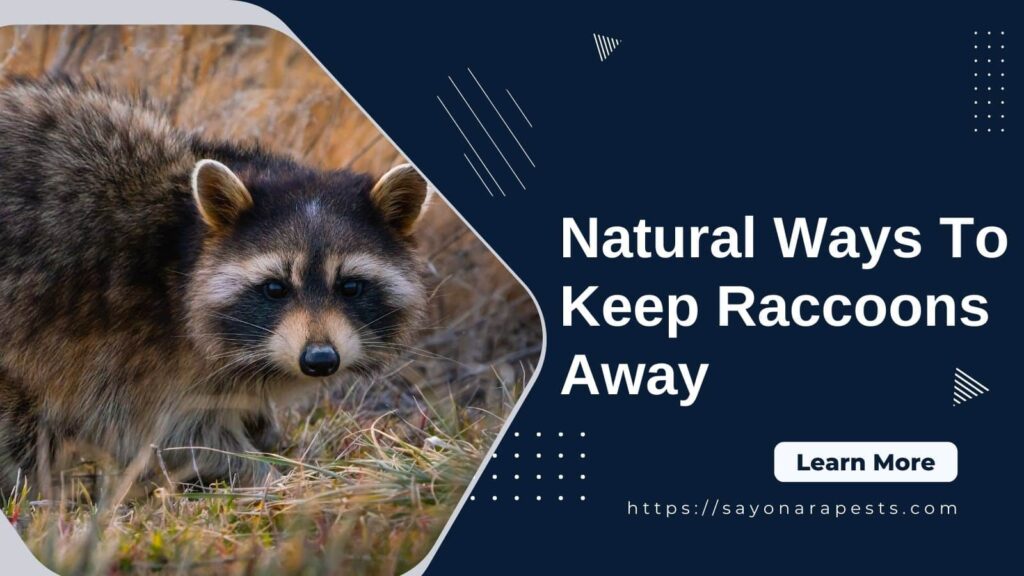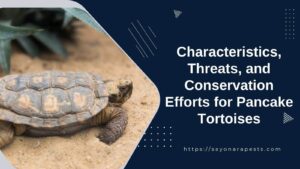There are many raccoons in the United States. They can be found in almost every state and territory.
Raccoons are usually a nuisance animal because they often damage property or spread diseases. There are several ways to keep raccoons away, both natural and artificial.
Some people use deterrents such as ammonia, mothballs, or ultrasonic sound emitters. Others may trap and relocate them.
Still, others may kill them.
Some people advocate using birth control to reduce the raccoon population, while others believe this is not a practical solution.
No matter what method you choose, it is essential to be safe and humane when dealing with raccoons.
If you’re tired of dealing with raccoons, there are some natural ways that you can keep them away.
Here are a few of the best:
1. Get a dog
Raccoons are wary of dogs, so having one on your property can help to keep them away.
You could consider getting a life-like replica or an electric fence if you don’t want a natural dog.
2. Block entry points
Raccoons typically enter properties through holes in the roof or under the deck.
Block these entry points off to keep them from getting inside.
3. Remove food sources
If you’re providing food for raccoons, they will keep coming back.
Remove any food sources on your property, such as pet food or unlocked garbage cans.
This means keeping the trashcan’s lid tightly sealed and bringing pet food inside at night. If you have a garden, make sure to harvest all of your fruits and vegetables as soon as they’re ripe.
Raccoons love nothing more than an all-you-can-eat buffet, so denying them access to food is key to deterring them from your property.
4. Use light and sound devices
Raccoons are attracted to darkness, so using bright lights can help to deter them.
You could also try using an ultrasonic device to emit a high-pitched noise that only raccoons can hear.
Another way to keep raccoons away is by making your yard less inviting to them.
Raccoons are attracted to areas with dense vegetation, so trimming back any overgrown bushes or trees is an excellent place to start. Additionally, picking up any fallen fruit from trees can help as well.
5. Plant deterrents
There are also several natural repellents that you can use to keep raccoons away from your property.
One popular option is predator urine, which can be purchased online or at some pet stores.
There are some plants that raccoons dislike, such as hot peppers and garlic.
Planting these around your property can help to keep them away naturally.
6. Apply stink bombs
Another way to deter raccoons is by making your property smell bad to them.
You can do this by applying stink bombs or spraying things like ammonia around the perimeter of your property. You can also put mothballs, fabric softener sheets, or cider vinegar in a cloth bag and hang it near any entry points
7. Try trapping them
If all else fails, you may need to resort to trapping the raccoons and then releasing them elsewhere.
This should be done as a last resort, as it can be dangerous and not always practical.
8. Spritz pepper spray
One of the best ways to keep raccoons away is by spraying them with pepper spray.
This will sting their eyes and nose, and it will deter them from coming back. Be sure to use a heavy-duty pepper spray that is specifically designed to repel animals
9. Ammonia-soaked clothes
Another way to keep raccoons away is by using ammonia-soaked clothes.
Simply soak some old clothes in ammonia and place them around your property. The pungent smell will deter raccoons from coming near.
10. Call in professional help
If you’ve tried all of the above methods and still can’t seem to get rid of raccoons, it may be time to call in professional help.
Wildlife control experts have the knowledge and tools necessary to safely remove raccoons from your property and relocate them elsewhere.
However, this should be considered a last resort, as capturing and relocating wildlife is often stressful and dangerous for the animal involved.











